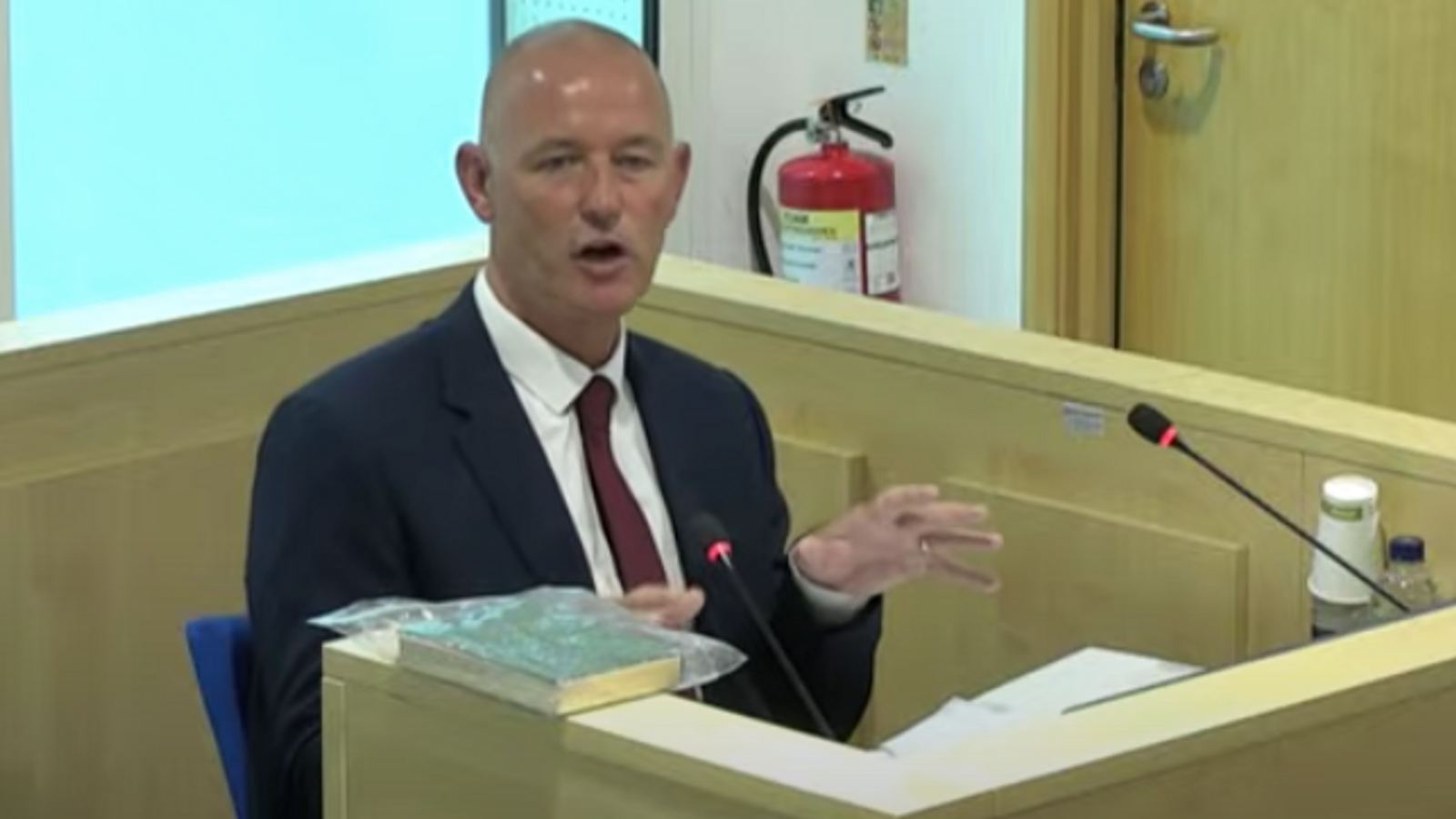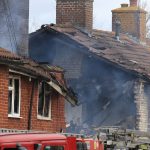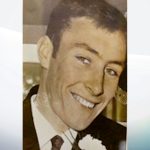Manchester’s former chief fire officer has made a personal apology to the families of the bereaved for failings on the night of the Arena bombing that left the dying and injured being carried from the scene on advertising hoardings.
Peter O’Reilly, who retired nine months after the attack, turned to the families during the hearing at Manchester Magistrates Court to tell them: “I am so sorry and I will regret my failings for the rest of my life.”
The chief officer said he was not initially told there had been a bomb at Manchester Arena and did not know that none of his fire crews had been sent to the incident.
Please use Chrome browser for a more accessible video player
He described his “absolute shock and bewilderment” when he arrived at fire service headquarters 1 hour 20 minutes after the explosion and realised from the TV that the ambulance service was there but his officers were not.
Nevertheless, it was another hour before he gave his firefighters permission to enter the Victoria Station complex under the Arena, and admitted this was an “absolute failure of mine.”
However, Mr O’Reilly said firefighters should automatically have been sent straight to the arena by the North West Fire Control and would have been there in four minutes.
He blamed an amalgamation with other regional services for the absence of senior officers in the control room on the night.
Mr O’Reilly turned to the families in the hearing room and said: “I want to apologise personally for all my failings and the failings of the organisation on May 22.
Please use Chrome browser for a more accessible video player
“I am so sorry and I will regret my failings for the rest of my life.”
The inquiry heard that Mr O’Reilly was in bed when he was rung at 11.08pm on May 22 2017, 37 minutes after the bomb attack.
He claimed that Dean Nankivell, the senior officer who rang him, told him that there had been an explosion, but not that it was a bomb attack and that he did not realise his crews had been sent to a fire station three miles away.
He said he believed he was being told about “support arrangements” for teams at Phillips Park, three miles from the Arena.
“It was a total failure of mine that I made the assumption we had resources at the scene,” Mr O’Reilly added.
The inquiry heard the chief officer did not arrive at fire service headquarters for another 40 minutes.
“If it was going to be a major incident which required attendance at other locations, I wanted to make sure I was professional-looking,” he said.
“I got my uniform out, had a shave, got washed and when I was ready set off for fire service headquarters.”
Please use Chrome browser for a more accessible video player
Mr O’Reilly said that when he arrived at the command support room at the fire service headquarters none of the technology was up and running.
However, it was another hour after the chief officer arrived at headquarters before firefighters were sent to the scene after a request from Steve Hynes, a senior member of the ambulance service who was already there.
By then the fire engines were being deployed to another fire station, which was still a mile from the Arena.
He said he should have “acted on instinct” and sent them to the Arena instead, adding: “That was a failing of mine.”
He said he “instinctively” decided to get more information from Derek Cartwright, the chief executive at the ambulance service, “and that caused a delay which I will regret for the rest of my life.”
The inquiry was told a senior officer, who took on the role of incident commander, was arguing for specialist response teams to be sent to the Arena because they had ballistic vests and special training for terrorist attacks.
Instead, Mr O’Reilly took the decision to send unprotected crews, with another officer in charge, following a conversation with his opposite number at the ambulance service.
By the time firefighters were given permission to enter the Victoria station complex under the Arena, it was 2 hours and 20 minutes after the explosion and unprotected police from two forces and ambulance paramedics had all been there for some time.
In a statement read to the inquiry, Mr O’Reilly added: “I know I speak on behalf of every firefighter in Greater Manchester Fire and Rescue Service, we are devastated that we did not contribute to the emergency response in the way we would have expected to.”
The inquiry continues.






















